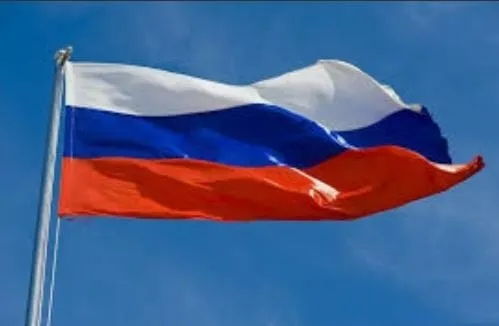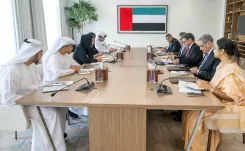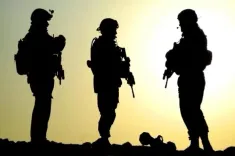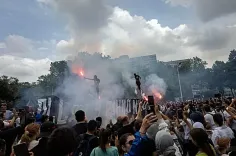Russia Dismisses Europe's Troop Deployment Claims as Deceptive

Synopsis
Key Takeaways
- Russia characterizes troop deployment claims as a bluff.
- Foreign troops would lack legal mandates in Ukraine.
- Diplomatic talks between US and Russia ongoing.
- Britain seeks to lead military coalition efforts.
- Calls for negotiations to resolve conflict.
Moscow, March 16 (NationPress) Russia labels the remarks made by the United Kingdom and European Union nations regarding the shift to the "operational phase" for deploying troops from the "coalition of the willing" to Ukraine as a bluff, as it hinges on security assurances provided by the United States, according to local media reports.
Chairman of the Russian Civic Chamber, Vladimir Rogov, stated, "The assertion concerning the operational specifics of deploying occupation forces into the post-Ukrainian territory, as mentioned by British Prime Minister Keir Starmer, is fundamentally a bluff since he immediately conditions it on backing from the United States."
Rogov emphasized that the introduction of foreign contingents into Ukraine would be unlawful and detrimental to security and lasting peace, as reported by state-run news agency TASS on Sunday.
"I firmly believe that the presence of British, German, French, and other foreign troops will make them prime targets for our military, as they lack any legitimate mandate to operate in this region," he added.
Meanwhile, senior diplomats from the US and Russia convened on Saturday to discuss the "next steps" to resolve the ongoing conflict in Ukraine, just hours after Ukraine's allies agreed to increase pressure on Moscow.
"US Secretary of State Marco Rubio had a conversation with Russian Foreign Minister Sergei Lavrov on Saturday. They discussed actionable steps to follow up on recent discussions held in Saudi Arabia and agreed to continue enhancing communication between the United States and Russia," stated Tammy Bruce, spokesperson for the US Department of State.
Britain organized a virtual summit with over 25 political leaders on Saturday. At a press briefing following the summit, British PM Keir Starmer, when asked if any definitive commitments were reached, indicated that the meeting had contributed to creating political and military momentum, with attending nations agreeing to amplify collective pressure on Russia.
However, he refrained from detailing the specific measures that would unfold in the "operational phase."
Starmer reiterated Britain's readiness to spearhead the "coalition of the willing," a framework for post-conflict arrangements that he unveiled two weeks ago during a London Summit.
He expressed Britain's willingness to deploy ground troops and aircraft. Nonetheless, he did not elaborate on how other nations would contribute to the coalition.
Joined by French President Emmanuel Macron and leaders from Canada, Ukraine, Australia, New Zealand, and the European Union, Starmer urged Russia to "come to the table to negotiate a deal."
Russian Foreign Minister Sergei Lavrov previously stated that the presence of NATO troops, regardless of their flag or role, on Ukrainian territory poses a threat to Russia, which will not accept this under any circumstances.
On March 13, following discussions with Belarusian President Alexander Lukashenko, Russian President Vladimir Putin stated at a press conference that Moscow is open to proposals aimed at ending hostilities in Ukraine, provided they lead to long-term peace and address the root causes of the crisis, as reported by TASS.







